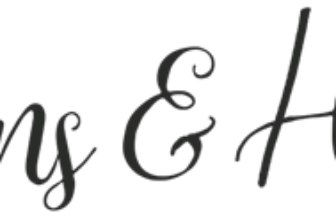
Increasing Brain Power
[ad_1]
“If the mind really is the finest computer, then there are a lot
of people out there who need to be rebooted.”
– Bryce’s Law
INTRODUCTION
In the world of writing there is something called “Writer’s Block” where the author
procrastinates on his work and is easily distracted. Hopefully, he overcomes
the problem and tackles his assignment. To do so, he needs to eliminate
distractions and engage his brain to the subject at hand. The same is true
in any endeavor, be it a carpenter, an engineer, or a programmer. The more we
can engage the brain, the more we can produce. The challenge therefore becomes
how to maximize the use of our brain. By brain power I am not referring to a
measurement of IQ, but rather to simply engage what God has given us.
LEVELS
I may not be a psychologist, but it has been my observation as a management
consultant that there is essentially three levels by which our brains operate:
LEVEL 1 – PRIMAL
This represents our basic instincts and reflex actions as we blunder through
life (I call this the “auto-pilot” mode). For example, we devise a morning
regimen where we awaken and prepare for work. At this level, we are not
at our most alert. Instead, we want to simply catch up on the news, brush
our teeth, dress, and travel to work. Similarly, at the end of the day, we
decelerate our activity as we prepare for sleep. In other words, we develop
predictable routines to go through day after day without much thought. The
brain is engaged, but far from our maximum output. In fact, we take in more
than we put out. This is where we want to be entertained or informed.
LEVEL 2 – MODERATE
This level represents an equal level of input and output. The brain is either
accelerating (at the beginning of the work day) or decelerating (at the end
of the work day). At this level we have no trouble taking instructions and
produce an average amount of work, quite often mundane or routine assignments
simply to pass the time of day. We are also easily distracted. In the normal
business day, Level 2 typically occurs between 9:00am – 10:00am (as the work
day begins), 12:00pm – 1:00pm (following lunch), and 4:00pm to 5:00pm (as
we prepare to conclude the work day).
LEVEL 3 – ACCELERATED
This level represents high achievement where we are able to concentrate
and put forth our best work effort. Here, the brain is fully engaged and our
output surpasses our input as we concentrate on the job at hand. In the
normal business day, Level 3 typically occurs between 10:00am – 12:00pm,
and 1:00pm – 4:00pm.
AVERAGE WORK DAY
Let us now consider how we use time during the average work day and
consider how much is used at the various levels. First, we will divide the
day into three equal increments of eight hours: Sleep, Work, and Personal Time.
REST – 8 HOURS
During this time, the brain is not truly engaged other than to maintain
bodily functions.
WORK – 8 HOURS
Based on studies we have performed on time management, we have
found most people in corporate offices to be approximately 70% effective,
meaning in an eight hour work day, they are spending about six hours on
direct work assignments, and two hours on indirect activities (time that
doesn’t contribute directly to their assignments; e.g., breaks, meetings,
taking instruction or direction, etc.)
PERSONAL TIME – 8 HOURS
This represents time where we perform pet projects and hobbies,
pay the bills, run errands, attend a function (such as a meeting),
relaxation, awake, prepare for sleep, etc. During this time we
typically spend two hours of concentrated work, and six hours of
indirect activities.
SHIFTING GEARS
This means in a typical work day, we only spend eight hours to really exercise
the brain (Levels 2 and 3). But from a manager’s perspective, we are primarily
concerned with the six hours devoted to work. During this time, people will
spend approximately three hours operating at Level 2 and three hours at
Level 3. This ratio between Levels 2 and 3 will fluctuate based on how well
the worker is able to engage the brain. Some people are able to engage their
brains at Level 3 for several hours, some for only an hour, and some not at all.
At this time we have to recognize that thinking is hard work. Although Level 3
is where we want employees to perform at, we must recognize that nobody can
keep it in high gear for an extended period of time. The brain grows weary and
moderates itself, shifting from Level 3 down to Level 2 or Level 1.
We must also beware of the “cattle phenomenon” whereby we fall into
the tedium of repetitive behavior and, as such, our brains do not progress
past Level 2. Consequently, repetition often leads to laziness.
“He who joyfully marches to music in rank and file has already earned my contempt. He has
been given a large brain by mistake, since for him the spinal cord would suffice.”
– Albert Einstein
SOME RECOMMENDATIONS
It is the manager’s objective to keep employees operating at Level 3 for as long
as is practical, thereby producing the best and most voluminous work products. To do
so, the manager must minimize distractions, relieve tension, and maximize focus
on work (concentration). To this end, the manager should consider the following:
* Use of Stimulants
No, I am not suggesting the use of narcotics in the work place, other than a
good strong cup of coffee (the rocket fuel of industry). However, you want to
create an environment that appeals to the human senses, specifically visual,
audio, touch, even smell. For example, a well lit and brightly painted room
stimulates human senses as opposed to a dark, dull, lackluster room. A
painting or office furnishings can add a touch of class and stress the disposition
of the office. A calm and quiet office, perhaps with some suitable background
music, can help people focus as opposed to a loud and boisterous environment.
Ergonomically designed office equipment can have a positive impact on employee
behavior. But be careful not to introduce too much comfort as it might put people
to sleep. To illustrate, I do not have a problem with hard chairs that force people
to sit up and pay attention.
Encourage mental gymnastics during the day. Perhaps some friendly debate
or the solving of a problem. It has long been known that puzzles, crosswords,
chess and checkers, and the like help stimulate the human brain. Simple, basic
social intercourse can work wonders in terms of stimulating the mind.
Consider room temperature; if too warm or too cold, it will become distracting.
But keep the room more cool than warm as it forces you to stay awake. Also
consider the amount of available oxygen which stimulates the brain.
Another area to review is nutrition. Make sure workers are eating the right
foods in the right amount. Large meals tend to put people to sleep immediately
afterwards.
Basic exercises can also enhance both physical and mental acuity. Many
companies now offer in-house facilities for such programs.
Understand this, employee breaks are not all bad. It gives the worker an
opportunity to get away from his work, clear his head, and return with a
better focus. Of course, there will be those employees who will abuse this
privilege and, because of this, the manager has to constantly monitor the
use of breaks.
Ultimately, the corporate culture has a profound effect on the stimulation
of workers. If the right environment is established, you can turn lethargic
workers into “movers and shackers.”
* Motivate
It is necessary for the manager to encourage workers to rise to a challenge
and work harder. To this end, the manager must play the role of Industrial
Psychologist to understand what makes people tick, thereby providing the means
to motivate them to excel. This can be done with simple praise, rewards, and
recognition. It can also be done through constructive criticism. I have seen
instances where both a cheerleader approach and a tough taskmaster approach
have worked to positive effect. Some people respond to praise, others respond
better when their integrity is challenged. Here, the manager has to intuitively
know when and where to press the right buttons of his workers.
The manager needs to be able to create a sense of urgency, regardless of the
task at hand. This can be done either by carrot or by stick depending on the situation.
The worker must understand their work is important and adds value to their life.
If they feel their work is irrelevant, then their self-esteem will suffer and they
will put forth little effort to achieve anything. One way of implementing this is
to empower the workers and make them more personally responsible for their
actions and allow them to participate in the decision making process. By
creating a sense of ownership, the worker becomes more responsible (and active)
in their work effort.
* Avoid Repetition
As indicated earlier, repetition can cause the brain to relax. Because of this,
the manager must consider ways to break up the monotony and cause the
workers to refocus. Work breaks can break up the tedium, perhaps with some brief
physical exercise thrown in. Scheduled breaks are effective but they too can face
the problem of repetition; e.g., workers work around anticipated breaks. In contrast,
unscheduled breaks often have a better effect as it disrupts worker expectations. Think
of it as a game of “Musical Chairs.”
Sometimes a simple change of scenery can help break up repetition. Instead
of meeting at the same place over and over again, try a different physical
venue to perk up worker interest.
* Health
Regardless of how logical we believe we are, the brain is a physical organ
greatly influenced by human health. If we are sick or in distress (perhaps due
to the death of a loved one, a pending divorce, financial problems, etc.), it
is difficult to focus on our work. The manager should monitor worker
mental/physical health and take corrective action. For example, if someone
is sick, get them to a doctor so they can begin to mend and become productive
again. Further, the last thing you need is for someone to infect the rest of
your workers with a contagious disease (e.g., colds, flu, etc.).
The manager should also look for sleep deprivation in workers and counsel
them accordingly. A tired worker will not engage his brain properly. Further,
look for signs of drug abuse and depression that might have an adverse effect
on their work.
* Minimize Distractions
One of the manager’s responsibilities is to monitor the surroundings of
the worker in order to minimize distractions and create a suitable environment
to concentrate on their work assignments. To assist in this regards, a Project
Management system is useful to record both direct and indirect activities. By
doing so, the manager can analyze the causes of worker distractions, plot
trends, and take appropriate action to minimize interference. For example,
if a manager detects excessive use of the telephone, he may devise a policy
to arrest the abuse. He may even go so far as to hold all outgoing calls.
The point is, the manager should constantly monitor and analyze
disruptions and distractions so that workers can concentrate on their
work effort.
* Avoid Technology
A recent study was performed by Kings College in London for Hewlett
Packard, the purpose of which was to study the effect of technology
on worker performance. According to Dr. Glenn Wilson, the author of the study:
“Results showed clearly that technological distraction diminished IQ test performance
(mean scores dropped from 143.38 achieved under quiet conditions to 132.75 under
‘noisy’ conditions).”
“The impact of distraction was greater for males (145.50 down to 127) than for females
(141.25 down to 138.50). Putting that another way, males were superior in quiet conditions,
females were superior in the distraction condition. This is consistent with the idea that women
are better than men at ‘multi-tasking’.”
“Noisy conditions caused a striking increase in self-reported stress. Ratings on a 0-10 scale
of ‘stress experienced during the test’ increased from 2.75 to 5.5 for males and 4.75 to 6.75
for females. Note that in addition to the main effect of conditions of testing, women reported
higher stress levels than men overall.”
Basically, Wilson’s study is saying that excessive use of technology can
have an adverse effect on a person’s brain power. This is somewhat disturbing
as technology now permeates our society. As an example, while traveling through
the airports recently I observed the majority of my fellow travelers “tuned out” by
technology. The lion’s share of travelers today make active use of iPods, PDA’s,
cell phones, DVD & CD players, and laptop computers. It seems fewer and fewer
travelers read a book or engage in conversation anymore. In other words, most
travelers today are operating at a Level 2.
If Wilson is correct, and I believe he is, the manager should take notice of
this adverse effect of technology and discourage the use of such devices,
particularly at break time, and encourage more interpersonal contact
instead. Technology has its place, but I tend to believe we rely too heavily
on it. For example, using an automated calculator allows our brain to relax
while the machine performs the math. Too often I have seen people reach for a
calculator to perform a simple computation as opposed to working it out with
paper and pencil. They simply do not want to engage their brains. Further, I
have seen whole engineering departments come to a standstill when power
outages brought their computers down. Do they really lack the skills to continue their
work? Not really; their minds have simply been turned off by the technology.
CONCLUSION
The human brain distinguishes us from the rest of God’s creatures. It is
sad when we do not use it to its full potential. How the brain shifts
between Levels 1-2-3 is something we control ourselves. We can
elect to engage it and aspire to achieve, or not to engage it and
become lazy and complacent. It can also be engaged due to circumstances
and affected by others, such as our friends, family, fellow workers and
manager.
How a manager manipulates his worker’s brain power is analogous to
a mechanic fine-tuning an automobile. He is simply trying to get the
most out of it. Hopefully, we can give the mechanic something to work
with; if not, we’ll be scrapped.
“The more you use your brain, the more brain you will have to use.”
– George Dorsey
For additional information on the use of time, see the following
“PRIDE” Special Subject Bulletins:
No. 18 – Being ‘Effective’ with Project Scheduling – Apr 04, 2005
https://www.phmainstreet.com/mba/ss050404.pdf
No. 17 – Taking the Mystery out of Estimating – Mar 28, 2005



